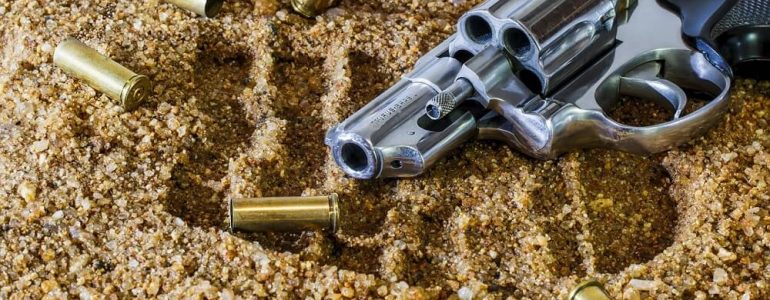The UK has very strict laws when it comes to possession and use of guns. The only exception is Northern Ireland where gun laws are much more lax.
So this guide on shooting laws applies mostly to gun regulation in England. Gun laws in Wales and Scotland are very similar though there may be some differences especially when it comes to wildlife hunting.
There are three types of guns that the law regulates: firearms, shotguns and airguns. Here’s what the law says about each of them.
Firearms
Firearms basically cover all guns that are not airguns or shotguns. These include machine guns, semi-automatic rifles and handguns.
Only specific firearms can be licensed to private citizens (section 1 firearms). They mostly include sporting and hunting rifles.
To own a firearm you must apply for a firearm certificate or FAC. You apply for an FAC at your local police station.
Unlike with shotguns, you must provide a good reason for owning a firearm. The officer will judge whether it is a good enough reason and whether you are fit to own a rifle. You’ll also be required to declare all past criminal convictions and nominate two referees for your application.
If you are granted an FAC, it will specify exactly which rifle you own and what it will be used for.
The certificate is valid for five years.
Persons over the age of 14 years can apply for an FAC. But only those over 18 years can buy firearms.
Shotguns
To own a shotgun you must apply for a shotgun certificate or SGC. This is much easier to get since you don’t need to provide a good reason for possession a shotgun. You only need to show the police that you can store the gun safely and that ownership does not endanger public safety.
Note that there is a legal definition of a shotgun which includes requirements that a shotgun must not hold more than three cartridges and the barrel has to be longer than 24 inches. So you may own what you think is a shotgun but is actually a riffle, legally speaking.
It is a serious offence to own a firearm without an FAC. If you are not sure which classification a certain shotgun falls under, seek guidance from the police.
As with a FAC, you’ll apply for a shotgun certificate from your local police station. They will assess your case and check whether you have safe storage for the gun (usually a secure gun safe).
The SGC is valid for five years and is not as restrictive as an FAC. You can buy additional shotguns and use different types of ammunition.
Airguns
According to UK law, airguns are firearms. But as long as the airgun does not exceed 12 foot-pounds of pressure or 6 foot-pounds for an air pistol, you don’t need a firearm certificate.
So it’s up to you to make sure your airgun does not go beyond that threshold. If it does – even if you did not know – you’ll be in illegal possession of an unlicensed firearm.
You can only use low-powered airguns in your private property or any other private property where you have permission to shoot. If you are caught trespassing with an airgun – regardless of whether it is loaded or not – that will be seen as armed trespass, a very serious criminal offence.
There are also some restrictions that apply to different ages.
Children under the age of 14 can use (but not buy, hire or receive as a gift) a low-powered airgun while under supervision by someone 21 years and older.
Individuals between 14 and 17 can borrow and use (but not buy or own) a low-powered airgun without supervision.
Persons 18 years and older have full rights to buy, own and use low-powered airguns.
Storing Guns
UK law does not make any demands as to the kind of storage that licensed gun owners should use. It only specifies that the gun should be securely stored in such a way that no one unauthorised to own the gun can access it. That includes unlicensed family members.
But most local police stations require gun owners applying for an FAC or SGC to use gun safes. They will inspect the safe and your home before approving your application.







